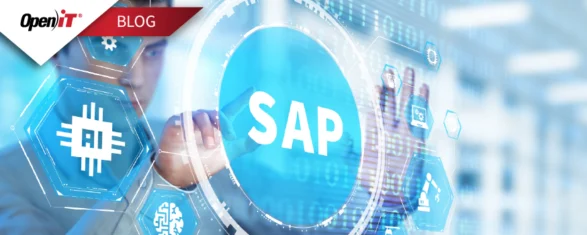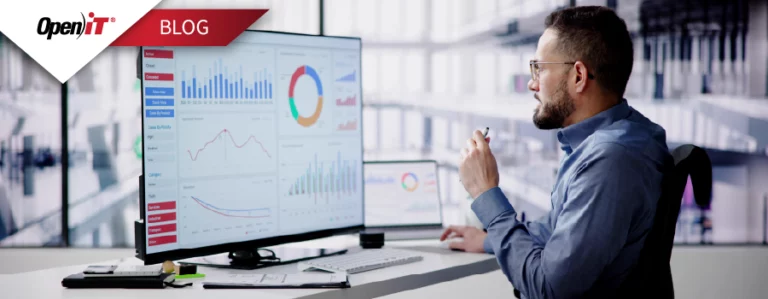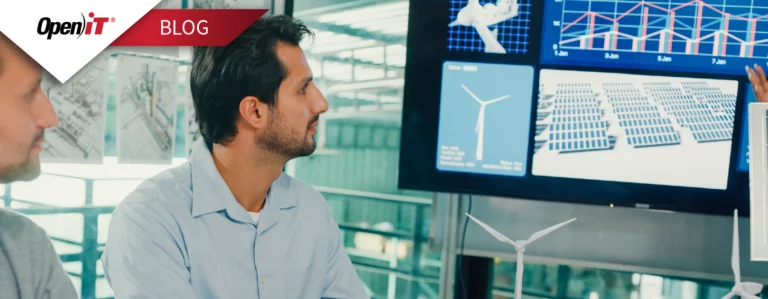The Strengthening Agency Management and Oversight of Software Assets (SAMOSA) Act, introduced in 2023, seeks to overhaul federal software asset management by implementing more rigorous practices, minimizing waste, and increasing transparency. With strong progress in both the Senate and Congress, the bill has gained broad support from key stakeholders, many of whom are now advocating for its swift passage into law.
As a GSA-certified provider in software license management for engineering and technical applications, Open iT is well-equipped to help organizations navigate these changes if the act becomes law.
The Need for the SAMOSA Act
Federal agencies are currently grappling with challenges in managing their software assets effectively, leading to substantial financial losses and operational inefficiencies. Every year, the US government spends $100 billion on IT and other cyber-related assets. Yet, organizations waste as much as 30% of their software budget on underutilized or unused software licenses.
For federal agencies, this could translate to billions of dollars in wasted taxpayer funds annually. The SAMOSA Act aims to address these issues by standardizing software management practices to reduce waste, enhance security, and improve governance. Backed by tech organizations and industry leaders, the act offers cost savings and greater accountability, though its successful implementation will require overcoming key challenges.
The US government spends $100 billion annually on IT and cyber assets, with up to 30% potentially wasted on underutilized or unused software licenses.
Potential Implementation Challenges
Despite its anticipated benefits, the SAMOSA Act also faces several significant challenges once enacted:
Resistance to Change
Transitioning to new standards and processes will involve substantial operational changes and may encounter resistance from agency staff. Successfully implementing these mandates requires not only adopting new tools and procedures but also undergoing a cultural shift within organizations.
A comparable challenge occurred during the rollout of the EU’s General Data Protection Regulation (GDPR) in 2018. Gartner forecasted that over 50% of businesses would not achieve compliance by the May 25 deadline. Many organizations struggled to meet operational requirements in crucial areas such as data management, privacy policies, and IT infrastructure by the implementation date.
Training and Education
The SAMOSA Act will require significant investment in training and education to ensure that agency personnel have the skills needed for effective software asset management. While this investment may be time-consuming and costly, especially for agencies with tight budgets, the long-term benefits are substantial.
Investing in training builds a skilled workforce capable of managing software assets more effectively, ultimately leading to cost savings, improved governance, and better use of taxpayer funds over time.
Standardization Across Diverse Agencies
Standardizing software management practices across diverse federal agencies poses another challenge. Each agency has its own unique requirements and operational needs, making it difficult to implement a one-size-fits-all approach to software management. Developing a framework that accommodates the varying needs of different agencies will require careful planning and coordination, as well as flexibility in the implementation process.
However, successful examples of sector-wide standardization, such as the ITIL framework for IT service management and the ISO 9001 quality management standard since the 1980s, demonstrate that while the process can be complex, meticulous planning and adaptable frameworks can achieve effective and consistent results.
Impact on the Tech Industry
The SAMOSA Act could have a major impact on the tech industry, especially for software vendors and service providers. Vendors might need to revise their pricing and licensing models to meet the new requirements, which could increase costs for some products.
However, the act also opens doors for innovation. Vendors may develop more competitive pricing and flexible licensing options, leading to better deals and more efficient solutions for federal agencies. Moreover, the emphasis on transparency could drive the creation of new technologies and services, benefiting both government and tech industry stakeholders.
Navigate the SAMOSA Act with Open iT
If the SAMOSA Act becomes law, Open iT is ideally positioned to assist organizations in meeting the new software management standards and optimizing their use of engineering and technical applications.
As a GSA-certified vendor, Open iT has already fulfilled the stringent requirements needed to serve federal agencies, guaranteeing that its solutions are both effective and compliant with government procurement standards. Open iT’s robust software asset management tools enable organizations to track software usage, ensure compliance, and optimize engineering licenses, helping them meet SAMOSA Act requirements while also reducing costs.
Enhanced Visibility, Reporting, and Compliance
Open iT supports the SAMOSA Act’s emphasis on transparency and accountability with customizable reports that ensure audit readiness and compliance. Its advanced tools collect extensive license utilization data from various sources, diving deep into this information to provide granular, actionable insights.
Organizations gain a clear picture of how their licenses are used, who is using them, for how long, and whether usage aligns with licensing terms. This improved visibility reduces risks like unauthorized installations and non-compliance. The system notifies administrators of potential compliance issues, minimizing risks, reducing disruptions, and enhancing operational efficiency by optimizing software use.
Cost Optimization and Waste Reduction
One of the primary goals of the SAMOSA Act is to reduce wasteful software spending. Open iT helps organizations achieve this by analyzing software usage data to identify cost-saving opportunities. By pinpointing unused or underutilized licenses, organizations can reallocate resources more efficiently, negotiate better licensing terms, and eliminate unnecessary expenditures. This proactive approach aligns with the act’s objective of maximizing the value of software investments.
For example, Burns & McDonnell saved 25% of their software spend, Mitta Oy cut their Autodesk license costs by 50%, and Burlington Resources reduced expenses by 57%, saving $5 million in two years. These results highlight the significant cost savings achievable with Open iT’s SAM solutions.
Managed Services
Implementing the SAMOSA Act requires more than just tools; it demands ongoing expertise and support. Open iT’s Managed Services help organizations adapt by providing continuous monitoring, license management, audits, and compliance assurance. By entrusting these tasks to Open iT, organizations can focus on their core missions while ensuring efficient and compliant software asset management.
Industry Experience
Open iT offers a wealth of industry experience, having collaborated closely with federal agencies, private contractors, and engineering software vendors that support the US government. This deep understanding positions Open iT as a trusted advisor and solution provider, adept at navigating the complexities of software asset management in alignment with the SAMOSA Act.
Our extensive track record includes successful partnerships with major organizations and government agencies, equipping us with valuable insights into the distinct needs and challenges faced by both federal agencies and government contractors.
Transform Your Software Management Practices Now
Whether or not the SAMOSA Act passes into law, Open iT is equipped to help federal agencies adapt to modern software management practices, driving efficiency, transparency, and value in their software investments. Discover how our solutions can help you stay ahead. Contact us to know more.






